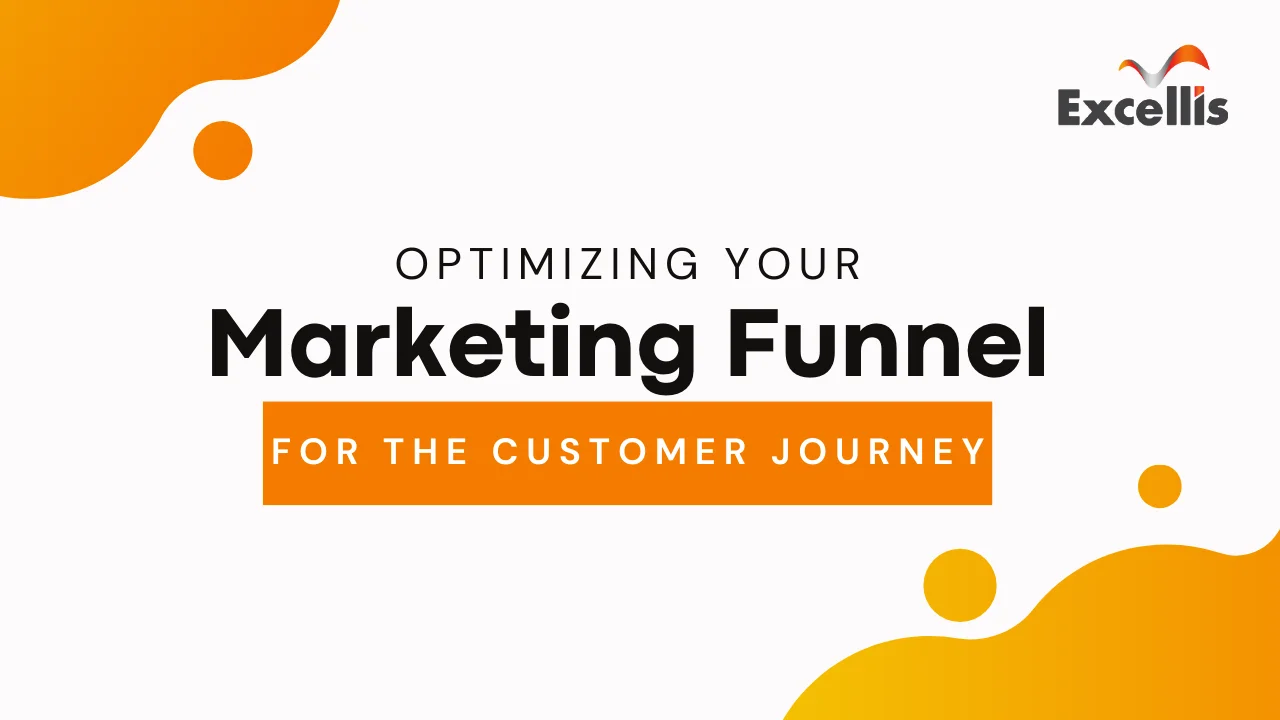
The marketing funnel is a crucial concept in modern business strategies, representing the customer’s journey from awareness to purchase. It comprises stages such as awareness, consideration, and decision, illustrating the evolving relationship between consumers and brands. Optimizing the customer journey within this funnel is paramount for businesses seeking sustained success. By understanding and enhancing each stage, companies can tailor their marketing efforts, enhance customer experiences, and boost conversion rates. This introduction delves into the significance of optimizing the customer journey within the marketing funnel, emphasizing its pivotal role in cultivating brand loyalty, driving sales, and ultimately achieving long-term business objectives.
Understanding Customer Journey Stages
Embarking on a successful marketing strategy begins with a profound understanding of customer journey stages, unraveling the intricate path from initial awareness to final purchase.
Awareness:
Importance of Creating Awareness:
Establishing awareness is the cornerstone of the marketing funnel, laying the foundation for customer engagement. It enables brands to introduce themselves to potential customers, making them aware of products or services. This initial stage sets the tone for the entire customer journey, shaping perceptions and creating the opportunity for further interaction.
Channels for Building Awareness:
Diverse channels play a pivotal role in building awareness, ranging from social media platforms and content marketing to traditional advertising. Leveraging these channels strategically ensures that brands reach their target audience effectively, maximizing visibility and generating interest.
Consideration:
Nurturing Leads in the Consideration Stage:
The consideration stage is about guiding potential customers towards a decision. Nurturing leads involves providing valuable information, addressing concerns, and showcasing the unique selling propositions of products or services. This phase is critical for transforming interest into serious consideration.
Content Strategies for Consideration:
Content strategies in the consideration stage should focus on in-depth information, comparisons, and case studies. Providing comprehensive content helps potential customers make informed decisions and establishes the brand as a reliable source of information.
Decision:
Closing the Deal in the Decision Stage:
The decision stage is where potential customers become paying customers. This phase involves effective sales tactics, personalized communication, and incentives that encourage conversion. Clear calls-to-action and a seamless purchasing process are essential elements.
Influencing Factors in Decision-Making:
Various factors influence decision-making, including pricing, reviews, and brand reputation. Understanding these factors allows businesses to tailor their approach, addressing concerns and reinforcing the value proposition.
Post-Purchase:
Enhancing Customer Experience Post-Purchase:
Post-purchase engagement is crucial for customer retention. Enhancing the customer experience involves seamless onboarding, post-purchase communication, and support, ensuring customers feel valued beyond the transaction.
Strategies for Retaining Customers:
Retaining customers requires ongoing efforts such as loyalty programs, personalized communication, and soliciting feedback. Building a long-term relationship with customers contributes to brand advocacy and repeat business, adding to the overall success of the marketing funnel.
Leverage the expertise of professionals for an optimized marketing funnel with a digital marketing company in Kolkata.
Mapping Content to Customer Journey
In the intricate realm of digital marketing, success hinges on the meticulous art of ‘Mapping Content to Customer Journey.’ This strategic approach involves aligning tailored content with each stage of the customer’s path, from initial awareness to final conversion, creating a seamless and engaging experience that resonates with the evolving needs and preferences of the audience.
Content Personalization:
Tailoring Content for Different Stages:
Content personalization involves crafting tailored messages for each stage of the customer journey, from awareness to decision. This ensures that the right information reaches the audience at the right time, optimizing engagement and guiding them seamlessly through the marketing funnel.
Using Data for Personalization:
Leveraging data insights enables effective content personalization. Analyzing customer behaviors and preferences allows businesses to deliver relevant and meaningful content, fostering a more personalized and engaging experience that resonates with individual needs.
Storytelling in Marketing:
Crafting Compelling Narratives:
Storytelling in marketing revolves around creating compelling narratives that captivate audiences. By weaving stories around brand values, products, or customer experiences, businesses can evoke emotions and build a connection with their audience, making the content more memorable and impactful.
Impact of Storytelling on Customer Engagement:
Storytelling goes beyond conveying information; it forges a deeper connection with consumers. The emotional resonance of a well-crafted narrative enhances customer engagement, fostering loyalty and a sense of shared values between the brand and its audience.
Utilizing Technology in Funnel Optimization
Here’s how businesses can harness the power of cutting-edge tools and strategies to refine their marketing funnels, enhance customer experiences, and stay ahead in today’s dynamic digital landscape.
Marketing Automation:
Streamlining Processes with Automation:
Marketing automation optimizes efficiency by automating repetitive tasks, allowing businesses to streamline workflows. From email campaigns to lead nurturing, automation enhances productivity, enabling marketers to focus on strategy and creativity rather than manual processes.
Choosing the Right Automation Tools:
Selecting appropriate automation tools is crucial for success. The right tools align with business goals, offering features like lead scoring, customer segmentation, and personalized communication. Strategic tool selection ensures a seamless integration of automation into marketing strategies.
Data Analytics:
Leveraging Data for Informed Decisions:
Data analytics empowers businesses to make informed decisions by extracting valuable insights from customer behavior and campaign performance. Utilizing data-driven strategies enhances targeting precision and allows for continuous refinement of marketing efforts.
Key Metrics to Track in Funnel Optimization:
In funnel optimization, tracking key metrics such as conversion rates, customer acquisition cost, and engagement rates is essential. Data analytics provides a quantitative understanding of the customer journey, aiding in the identification of areas for improvement and overall marketing success.
Integrating Social Media Strategies
Here’s how to seamlessly integrate social media strategies into your business arsenal, unlocking the power of digital engagement and fostering meaningful connections with your audience.
Social Listening:
Understanding Customer Sentiment:
Social listening involves monitoring online conversations to grasp customer sentiment. By analyzing mentions and comments, businesses gain valuable insights into public perception, allowing them to respond promptly to feedback and adapt strategies to meet customer expectations.
Responding Effectively to Social Feedback:
Effective social listening goes beyond observation; it includes proactive engagement. Responding promptly and thoughtfully to social feedback builds trust and loyalty, showcasing a brand’s commitment to customer satisfaction and fostering positive relationships.
Influencer Marketing:
Collaborating with Influencers for Funnel Optimization:
Integrating influencers into marketing strategies enhances funnel optimization by leveraging their reach and credibility. Influencers can introduce products, create awareness, and drive engagement, strategically aligning with specific stages of the customer journey.
Measuring the Impact of Influencer Campaigns:
Evaluating the impact of influencer campaigns is crucial for ROI. Metrics such as engagement rates, click-throughs, and conversions help businesses assess the effectiveness of influencer collaborations, ensuring a data-driven approach to future influencer marketing strategies.
A/B Testing for Continuous Improvement
Unlocking continuous improvement in your strategies is just a test away! Dive into the world of A/B Testing, where insightful experimentation reigns supreme. Here’s how you can harness the power of A/B testing to refine, optimize, and elevate your marketing game to new heights.
Importance of A/B Testing:
Optimizing Elements in the Funnel:
A/B testing is instrumental in refining and optimizing various elements within the marketing funnel. By comparing two versions of a webpage, email, or ad, businesses can identify the most effective design, content, or call-to-action, leading to improved conversion rates and overall funnel performance.
Interpreting A/B Test Results:
Interpreting A/B test results after organic or ad marketing requires a nuanced understanding of statistical significance. Analyzing data from variations helps marketers draw insights into consumer preferences, informing strategic decisions for ongoing optimization and ensuring that changes positively impact the customer journey.
Personalization through Customer Segmentation:
Here’s how tailoring your approach to demographic and behavioral factors can elevate your marketing strategies, ensuring a more profound connection with your audience and driving superior results throughout the customer journey.
Segmentation Strategies:
Demographic Segmentation:
Demographic segmentation involves categorizing customers based on factors like age, gender, income, and location. Tailoring marketing efforts to specific demographic groups allows for more personalized communication, addressing the unique preferences and needs of each segment.
Behavioral Segmentation:
Behavioral segmentation classifies customers based on their actions, such as purchasing behavior, website interactions, or engagement with marketing campaigns. Understanding these behaviors enables businesses to create targeted and personalized experiences, enhancing customer satisfaction and increasing the effectiveness of marketing strategies.
Importance of Mobile-Friendly Funnels:
Mobile Usage Trends:
With the increasing prevalence of smartphones, mobile usage has become integral to consumers’ daily lives. Therefore, ensuring mobile-friendly marketing funnels is paramount. Statistics show a significant shift towards mobile browsing and shopping, emphasizing the need for responsive and optimized experiences on smaller screens.
Mobile Optimization Best Practices:
Mobile optimization involves creating seamless, user-friendly experiences. Best practices include responsive web design, fast-loading pages, and intuitive navigation. Prioritizing mobile optimization not only caters to the growing mobile audience but also positively impacts search engine rankings, as search algorithms prioritize mobile-friendly websites.
Aligning Sales and Marketing Efforts:
Common Challenges in Alignment:
Effective collaboration between sales and marketing teams is often hindered by communication gaps and differing priorities. Misalignment can lead to missed opportunities and a disjointed customer experience. Overcoming these challenges requires a shared understanding of goals and improved communication channels.
Strategies for Effective Collaboration:
Strategies for aligning sales and marketing efforts involve fostering open communication, establishing shared goals, and implementing integrated technologies. Regular meetings, joint planning sessions, and feedback loops enhance collaboration, ensuring a cohesive approach throughout the entire customer journey.
Monitoring and Adapting to Trends:
Importance of Industry Awareness:
Industries are dynamic, and staying informed about evolving trends is crucial for maintaining a competitive edge. Industry awareness enables businesses to anticipate changes in consumer behavior, technology, and market dynamics, allowing for proactive adjustments to marketing strategies.
Adapting Strategies to Emerging Trends:
Adapting strategies to emerging trends involves a proactive approach to incorporate new technologies, consumer preferences, and industry shifts. Whether it’s the rise of new social media platforms, changes in search algorithms, or evolving customer expectations, businesses that monitor and adapt to trends stay agile and relevant in the market. Regular analysis of data and market research facilitates timely adjustments to strategies, ensuring sustained success in the ever-changing landscape.
Challenges in Funnel Optimization
Overcoming Implementation Hurdles:
Implementing funnel optimization strategies often faces challenges such as resistance to change, technical complexities, or insufficient resources. Overcoming these hurdles requires a well-communicated plan, employee training, and a phased approach to implementation. A collaborative effort and clear communication can mitigate resistance and facilitate successful execution.
Addressing Funnel Optimization Pitfalls:
Pitfalls in funnel optimization may include overlooking certain stages, neglecting user experience, or misinterpreting data. Identifying and addressing these issues is crucial for maintaining a streamlined customer journey. Regular audits, A/B testing, and feedback analysis help uncover and rectify potential pitfalls, ensuring ongoing refinement of the optimization process.
Conclusion
In conclusion, navigating the intricacies of funnel optimization requires a comprehensive approach, addressing challenges from mobile responsiveness to aligning sales and marketing efforts. Overcoming implementation hurdles and addressing pitfalls through continuous monitoring and adaptation are key. As we recap essential strategies like social listening, content personalization, and data analytics, the emphasis on collaboration and industry awareness remains paramount. Funnel optimization is not a static task but an ongoing, dynamic process. Recognizing its continuous nature ensures businesses stay agile, responsive, and well-positioned to meet the evolving needs of their audience in the ever-changing landscape of the market.
Get professional expertise for an optimized marketing funnel with a digital marketing company in Kolkata.
More reasons to trust us!
Excellis IT is building a skilled team in IT support, customer support, digital marketing, and back-office services for modern companies.

Excellis it is an esteemed ISO/IEC 27001:2022 certified company

We achieved the prestigious certification by MSME in 2019

We are certified by the Central Vigilance Commission

We are an honoured members of NASSCOM since 2022






